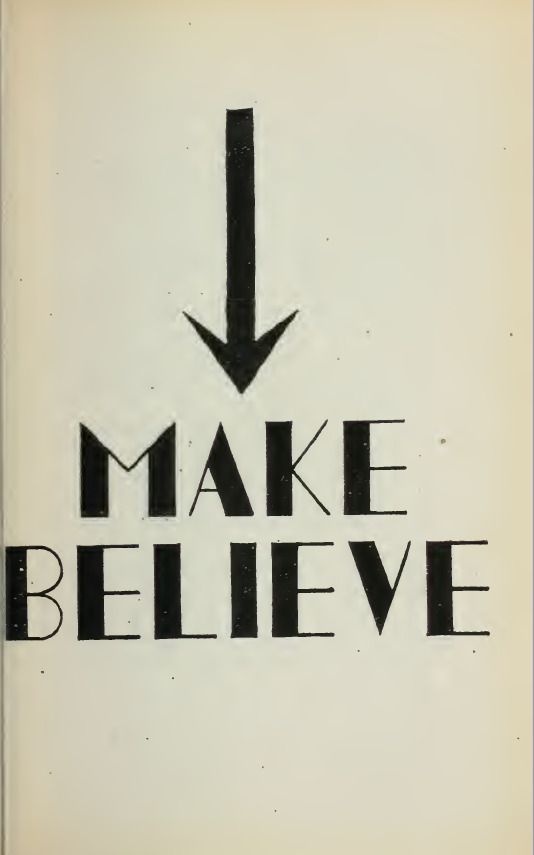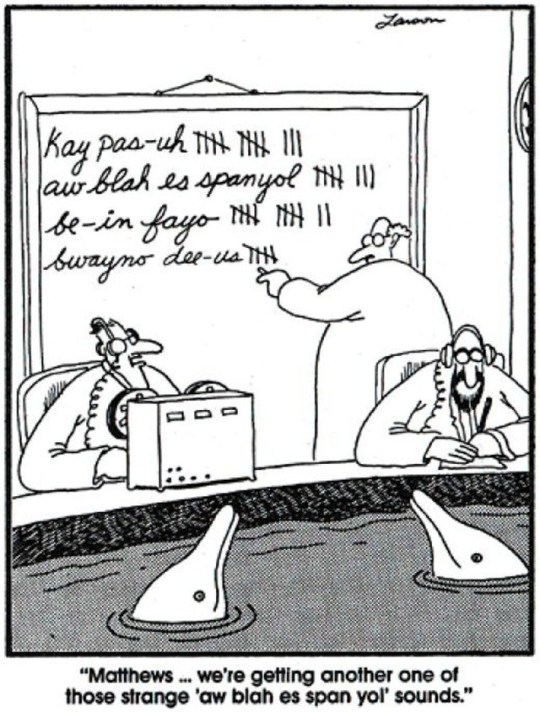Photo

Maarten Vanden Eynde - Cosmic Connection, 2016 (Metal, recycled telephone and computer circuit boards, 800 x 300 x 800 cm)
“Several thousands of satellites are in orbit around Earth, but only a very small fraction is still working. Cosmic Connection visualises a Utopian attempt in the far future to reconnect to the sky. Remnants of the technological revolution (in the form of circuit boards of telephones and computers) are soldered together to form a possible receiver for signals from lost satellites. It also draws inspiration from humanities eternal search for other life forms in the Universe and looks at our own origin and evolution as stardust.”
2 notes
·
View notes
Quote
Mourons pour des idées d'accord, mais de mort lente
George Brassens, “Mourir pour des idées”
2 notes
·
View notes
Quote
What is learning to laugh again? It is relearning a laugh which would not be the irony and derision which always avoids risk-taking, going beyond the differences to recognize the same. It is, instead, the laughter of humor. It is comprehending and appreciative without expecting to find a secure position. It is able to disagree without being awe-stricken or trying to be awe-inspiring. Does this perspective share an affinity with the position of women in our societies? Maybe. This position, insofar as it has a certain specificity, is that of a minority-not numerical, of course, but in the sense of those norms which are supposed to define the modes of human existence. The first challenge to which a minority must respond is to not let itself be fascinated by the majoritarian norm, which includes not defining itself as its opposite. And one of the many ways to meet this challenge is "not to be too easily impressed," never to accept any easy or direct identification (even so as to resist it) of anybody or thing with great referents such as Science, Reason, Objectivity.
Isabelle Stengers, “Another Look: Relearning to Laugh”
1 note
·
View note
Quote
[...] in the institutional mode, participation often refers to the progressive “authorization” to partake in what Judith Schlanger in Penser la bouche pleine would call a professional economy of seriousness, by which academic disciplines, forms of expertise and judgment, sources of funding, as well as criteria of publication and employability, become established. [...]
If the practice of thinking-with poses a different kind of challenge, it is because it belongs to the intimate question of whom one is learning to think with, and as such, situates this apprenticeship as a demand to resist an unthinking participation in the way in which seriousness circulates in thought. To recall the Argentinian writer Julio Cortázar, who is perhaps the school’s most secret member and who once asked, “Who will save us from seriousness?” (La Vuelta al día, 54), the difference is between citing others in order to be right, in order to seek authorization, and citing others because we “want to gather our friends together.” In this way, the attempt to think with others confronts one directly with a kind of influence that is neither that of the historical determinations by which a given epoch determines what matters—what or how it may be relevant to think—nor that of the socializing processes by which one may become a ‘serious’ thinker.
My sense is that what is put into play is a much more intimate and felt influence– a veritable reverberation that shakes up the surface of our being, and whose aim is not that of restoring thought to its origins but of bringing new thinking into existence. To borrow the words of Schlanger again, to think-with is “to find in ourselves the doings of others as well as our doings upon those others, it is to think that we become,” and to become as we think, “through the profound company of others” (Le neuf 31). It seems to me that the kind of adventure involved in “thinking with” is therefore one that plays out in an encounter with practices to which the questions are not simply about what they “say” or what they “do,” but about what they cultivate in their doing– about what, through their careful gestures, they enable to come into existence, as well as what they attempt to resist. This is a plane of thought where what is at stake is the cultivation of certain sensibilities, certain tones and dispositions of feeling that, as William James in The Will to Believe would put it, make rationality more of a sentiment than a faculty, and that rather than tell us what to think, force us to come to terms with the open problem of taking care of how we think.
Martin Savransky, “The Humor of the Problematic”
0 notes
Photo

Jean Epstein, Cinéma, 1921
2 notes
·
View notes
Quote
Mais du surnaturel. Le cinéma est surnaturel par essence. Tout se transforme selon les quatre photogénies. Raymond Lulle n’a point connu de si belle poudre de projection et de sympathie. Tous les volumes se déplacent et mûrissent jusqu’à éclater. Vie recuite des atomes, le mouvement brownien est sensuel comme une hanche de femme ou de jeune homme. Les collines durcissent comme des muscles. L’univers est nerveux.
Lumière philosophale. L’atmosphère est gonflée d’amour.
Je regarde.
Jean Epstein, “Bonjour Cinéma”, 1921.
0 notes
Quote
The cinema, more radically still, was the instrument through which we preserved a relationship with the world and, at the same time, we reflected on its loss. [...] In other words, a device that offered us images so that they might perpetuate the presence of the real; yet one that, reducing the world to its images, also revealed how it was by then a tender or cruel illusion. [...] How better to evoke the pleasure of filling one’s eyes, together with the sorrow before this race to the death of things? Yet what comes to light in those ephemeral and luminous images on the screen is precisely the splendor and the farewell, the exaltation and the mourning. In other words, the seizing hold and the vanishing, the conquest and the loss, in a game that is realized before our eyes and in which we ourselves are bound—a sumptuous game reserved, all in all, for the last gods. Yes, the cinema was precisely and primarily this game of conquest and loss. And in this game, it offered itself as a lesson for its century, the twentieth century: as its eye.
Francesco Casetti, Eye of the Century. Film, Experience, Modernity
0 notes
Quote
Ce sont des gens qui sont réels, et c'est le monde qui fait bande à part. C'est le monde qui se fait du cinéma. C'est le monde qui n'est pas synchrone, eux sont justes, sont vrais, ils représentent la vie. Ils vivent une histoire simple, c'est le monde autour d'eux qui vit un mauvais scénario.
Jean-Luc Godard, à propos de Bande à Part
5 notes
·
View notes
Video
youtube
1 note
·
View note
Quote
Transformer la colère en force. Il s'agit plutôt d'un art redoutable: elles savent faire des histoires sans que le désarroi puisse prêter le flanc à la compréhension - elle a ses humeurs, ah les hormones! [...] Ne pas s'étonner, ne pas lui chercher des explications, et surtout ne pas apaiser, céder à la tentation de jouer la médiatrice, mais savoir prendre le relais, sur son monde propre, savoir saisir et relancer les raisons - et il y a toujours des raisons - pour lesquelles la situation peut en effet susciter la recalcitrance.
Un art, cela se cultive, et cela demande la confiance, mais un étrange type de confiance - pas en soi "je sais ce que je fais", plutôt en l'occasion et en ce qu'elle demande. La question n'est pas, surtout pas, de Vérité, ni de rédemption. On sait bien qu'on a toléré déjà ce qui, ici, suscite la colère, et on sait qu'on le tolérera encore. La force même des faiseuses d'histoires est de ne pas représenter le Vrai mais de témoigner pour la possibilité d'autres manières de faire qui seraient peut-être "meilleures", car ce qui met en colère, ce n'est pas une grande cause, au nom de laquelle l'héroïsme serait de rigueur, mais l'impuissance ressentie face aux "il faut bien" qui s'installent, "que nous le voulions ou non".
Qui s'installent partout. [...] Les faiseuses d'histoires ont appris que, dans nos vies et dans nos mondes, c'est toujours en profitant d'une faiblesse, d'un laisser-aller, d'une inertie, d'une lâcheté que la logique des "il faut bien" se met en place... et nous murmure que nous avons mérité ce qui nous arrive, que la moindre des dignités, c'est de l'accepter sans faire d'histoires. Mais ce murmure, peut-être est-il celui de notre époque, habitée qu'elle est par la honte d'avoir laissé faire, de n'avoir pas pu résister. Et peut-être la question doit se répercuter partout où il s'agit de résister à la honte sans pour autant prendre la posture de l'innocence, partout où le "que nous est-il arrivé?" doit fabriquer de la pensée, c'est-à-dire, on l'aura compris, de la vie, et pas de la plainte et du ressentiment.
Vinciane Desprets & Isabelle Stengers, Les Faiseuses d’Histoires. Que font les femmes à la pensée?, 2011
0 notes
Quote
But the questions must be answered; and they are so important that if all the daughters of educated men did nothing, from morning to night, but consider that procession, from every angle, if they did nothing but ponder it and analyse it, and think about it and read about it and pool their thinking and reading, and what they see and what they guess, their time would be better spent than in any other activity now open to them. But, you will object, you have no time to think; you have your battles to fight, your rent to pay, your bazaars to organize. That excuse shall not serve you, Madam. As you know from your own experience, and there are facts that prove it, the daughters of educated men have always done their thinking from hand to mouth; not under green lamps at study tables in the cloisters of secluded colleges. They have thought while they stirred the pot, while they rocked the cradle. It was thus that they won us the right to our brand-new sixpence. It falls to us now to go on thinking; how are we to spend that sixpence? Think we must. Let us think in offices; in omnibuses; while we are standing in the crowd watching Coronations and Lord Mayor’s Shows; let us think as we pass the Cenotaph; and in Whitehall; in the gallery of the House of Commons; in the Law Courts; let us think at baptisms and marriages and funerals. Let us never cease from thinking—what is this ‘civilization’ in which we find ourselves? What are these ceremonies and why should we take part in them? What are these professions and why should we make money out of them? Where in short is it leading us, the procession of the sons of educated men?
Virginia Woolf, The Three Guineas
1 note
·
View note
Video
youtube
”My own story is full of missing links, full of blanks and I do not even have a child”
1 note
·
View note





